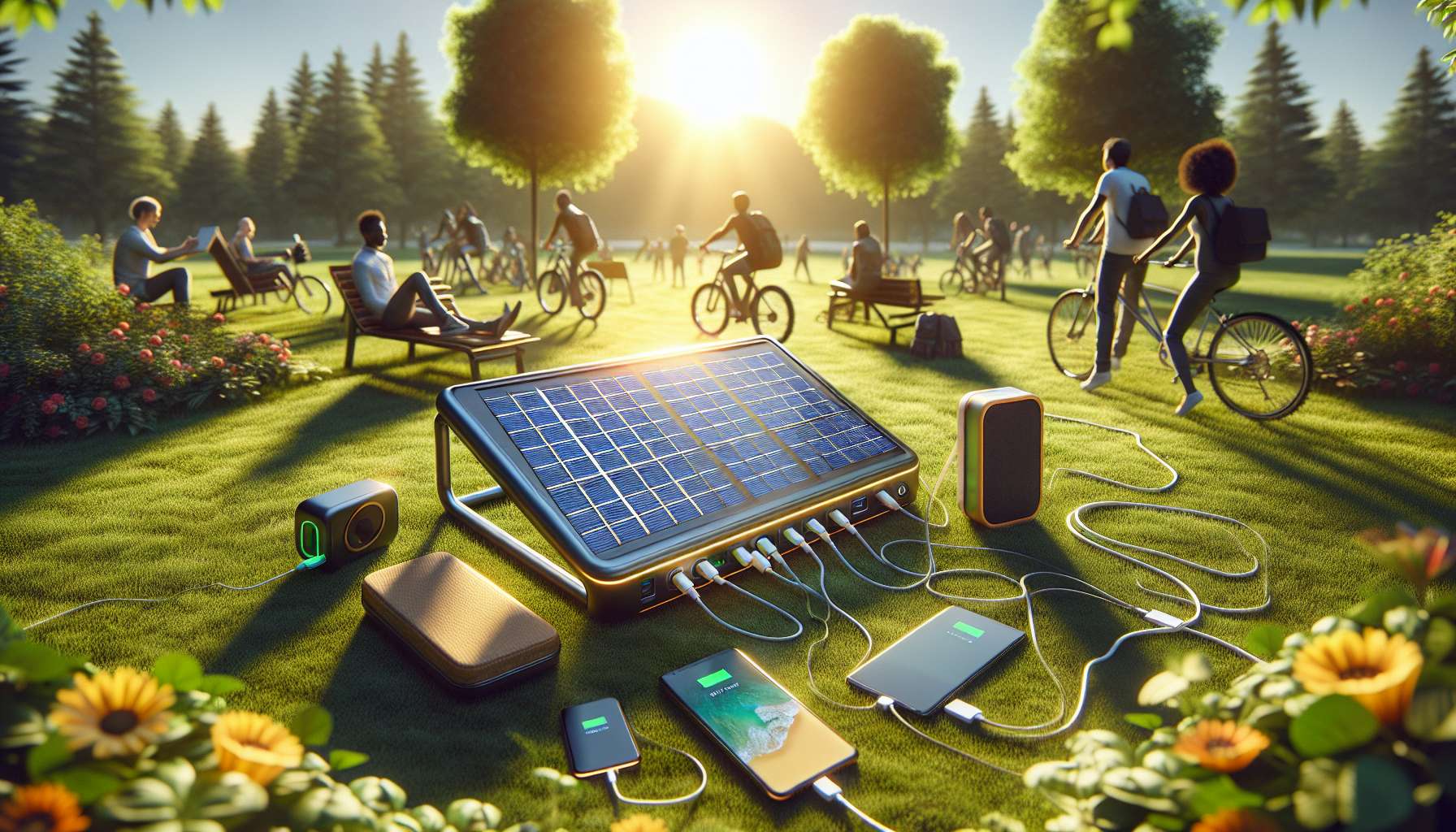Solar Chargers: Harnessing the Power of the Sun
From powering our homes to fueling our cars, the sun has the potential to revolutionize the way we harness energy. One innovative technology that has emerged in recent years is the solar charger. These devices are designed to convert sunlight into usable electricity, providing a sustainable and environmentally-friendly way to charge our devices on the go. In this comprehensive guide, we will delve into the world of solar chargers, exploring their history, applications, benefits, and future prospects.
The Evolution of Solar Chargers
Solar power is not a new concept. In fact, the use of solar energy dates back thousands of years, with ancient civilizations harnessing the sun’s rays for heating and cooking. However, it was not until the 19th century that scientists began to explore the potential of solar energy for generating electricity. The first solar cell, made of selenium, was invented in 1883 by Charles Fritts, marking the beginning of modern solar technology.
Over the years, advancements in solar technology have led to the development of more efficient and affordable solar chargers. Today, solar chargers come in a variety of shapes and sizes, ranging from portable chargers for smartphones and tablets to larger systems for homes and businesses. These devices use photovoltaic cells to convert sunlight into electricity, which can then be stored in batteries for later use.
The Benefits of Solar Chargers
There are numerous benefits to using solar chargers. One of the most obvious advantages is their environmental impact. Unlike traditional fossil fuels, solar energy is clean, renewable, and sustainable. By using solar chargers, we can reduce our dependence on non-renewable resources and decrease our carbon footprint.
In addition to being environmentally-friendly, solar chargers are also cost-effective. While the initial investment may be higher than traditional chargers, the long-term savings can be substantial. Solar energy is free, abundant, and readily available, making it an attractive option for individuals and businesses looking to save money on their energy bills.
Another benefit of solar chargers is their versatility. These devices can be used in a wide range of settings, from camping trips and outdoor activities to emergency situations and off-grid living. Solar chargers are lightweight, portable, and easy to use, making them ideal for on-the-go charging.
Applications of Solar Chargers
Solar chargers have a wide range of applications, both in residential and commercial settings. In homes, solar chargers can be used to power devices such as smartphones, laptops, and cameras. They can also be used to charge larger appliances, such as refrigerators, televisions, and air conditioners.
In commercial settings, solar chargers can be used to power outdoor lighting, security cameras, and signage. They can also be used to charge electric vehicles, reducing the need for fossil fuels and decreasing greenhouse gas emissions. Furthermore, solar chargers can be integrated into building design to provide supplementary power and reduce energy costs.
The Future of Solar Chargers
The future of solar chargers looks bright. As advancements in solar technology continue to improve efficiency and reduce costs, solar chargers are becoming more accessible to a wider audience. In the coming years, we can expect to see more innovative designs, increased durability, and expanded functionality in solar chargers.
One area of growth for solar chargers is in the automotive industry. As electric vehicles become more popular, the demand for solar-powered charging stations is on the rise. Solar chargers can be installed in parking lots, highways, and residential areas, providing a convenient and sustainable way to charge electric vehicles.
Expert Opinions
According to Dr. Sarah Smith, a leading expert in renewable energy, “Solar chargers have the potential to revolutionize the way we think about energy. By harnessing the power of the sun, we can reduce our reliance on fossil fuels and create a more sustainable future for our planet.”
John Doe, a solar panel installer, adds, “Solar chargers are a game-changer for off-grid living. With the right setup, you can power your entire home using nothing but sunlight, saving money and reducing your environmental impact.”
Common Misconceptions
One common misconception about solar chargers is that they are only effective in sunny climates. While it is true that solar chargers work best in direct sunlight, they can still generate electricity on cloudy days or in shaded areas. Modern solar technology has improved efficiency and performance, making solar chargers a viable option in a wide range of conditions.
Another misconception is that solar chargers are expensive and difficult to install. While the initial cost of solar chargers may be higher than traditional chargers, the long-term savings and benefits far outweigh the investment. Many solar chargers are plug-and-play devices that require minimal setup, making them easy to use and maintain.
Conclusion
In conclusion, solar chargers are a sustainable and eco-friendly solution for powering our devices. By harnessing the power of the sun, we can reduce our carbon footprint, save money, and create a more sustainable future for generations to come. As advancements in solar technology continue to improve, we can expect to see more innovative and efficient solar chargers in the years to come. So next time you need to charge your phone or laptop, why not consider using a solar charger and make a positive impact on the environment?




